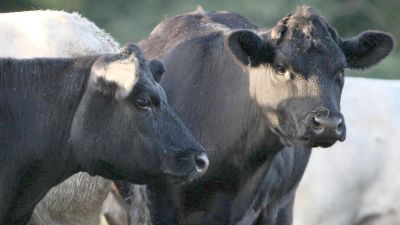Bluetongue restriction zones extended to East Yorkshire and Lincolnshire farms

Farmers in East Yorkshire and parts of Lincolnshire are facing restrictions on the movement of livestock to limit the spread of bluetongue virus.
The UK's chief vet extended restriction zones already in place after 70 confirmed cases of the infection across Europe.
Norfolk and Suffolk were the first UK counties to be affected.
The first sign of the disease in Yorkshire was a confirmed case in Withernsea on 4 September.
Affected farms need an authorised licence to move animals.
What is bluetongue?
Bluetongue is a non-contagious, viral disease which affects animals including cattle and sheep.
It is transmitted by biting midges and can cause symptoms such as ulcers, sores, painful hooves, lameness and reproductive problems.
The Department for Environment, Food and Rural Affairs has confirmed the disease does not affect people or food safety, but outbreaks can result in prolonged animal movement and trade restrictions.
Lincolnshire sheep farmer Edward Brant, 29, says people in the industry are underestimating how dangerous bluetongue virus could be to livestock.
His farm, in Louth, sells breeding rams.
He said: "Now, because of the restrictions, we can't move those rams off the premises so they are eating grass that we had saved up for winter.
"So it's a loss of income for those rams."
The UK's chief vet, Christine Middlemiss, said restrictions were unavoidable.
She said: “As the number of bluetongue cases continues to rise in England and northern Europe, we are taking prompt action to mitigate the spread of the disease.
“I urge farmers within bluetongue control zones to adhere to restrictions and remain vigilant to prevent the disease spreading to their herds.
“We appreciate the impact restrictions can have on farmers and are committed to working with everyone affected. We will continue to keep control zones under review as our understanding of the disease picture develops.”
The worsening situation follows the government's decision to permit the use of three bluetongue vaccines.
However, the vaccine only suppresses symptoms of the disease as opposed to preventing or building immunity in animals.
Mr Brant said: "The disease may be here to stay so how we tackle it may have to change with time as we can't just lock down forever."